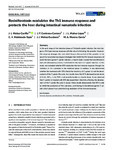
Please use this identifier to cite or link to this item:
http://ricaxcan.uaz.edu.mx/jspui/handle/20.500.11845/708Full metadata record
| DC Field | Value | Language |
|---|---|---|
| dc.contributor | 120273 | es_ES |
| dc.contributor.other | https://orcid.org/0000-0003-1324-4488 | - |
| dc.coverage.spatial | Global | es_ES |
| dc.creator | Muñoz Carrillo, José Luís | - |
| dc.creator | Contreras Cordero, Juan Francisco | - |
| dc.creator | Muñoz López, José Luis | - |
| dc.creator | Maldonado Tapia, Claudia | - |
| dc.creator | Muñoz Escobedo, José Jesús | - |
| dc.creator | Moreno García, María Alejandra | - |
| dc.date.accessioned | 2019-02-28T18:21:26Z | - |
| dc.date.available | 2019-02-28T18:21:26Z | - |
| dc.date.issued | 2017 | - |
| dc.identifier | info:eu-repo/semantics/publishedVersion | es_ES |
| dc.identifier.issn | 1365-3024 | es_ES |
| dc.identifier.uri | http://localhost/xmlui/handle/20.500.11845/708 | - |
| dc.identifier.uri | https://doi.org/10.48779/tn6m-my91 | - |
| dc.description.abstract | In the early stage of the intestinal phase of Trichinella spiralis infection, the host triggers a Th1-type immune response with the aim of eliminating the parasite. However, this response damages the host which favours the survival of the parasite. In the search for novel pharmacological strategies that inhibit the Th1 immune response and assist the host against T. spiralis infection, a recent study showed that resiniferatoxin had anti-inflammatory activity contributed to the host in T. spiralis infection. In this study, we evaluated whether RTX modulates the host immune response through the inhibition of Th1 cytokines in the intestinal phase. In addition, it was determined whether the treatment with RTX affects the infectivity of T. spiralis-L1 and the development of the T. spiralis life cycle. Our results show that RTX decreased serum levels of IL-12, INF-γ, IL-1β, TNF-α and parasite burden on muscle tissue. It was observed that T. spiralis-L1 treated with RTX decreased their infectivity affecting the development of the T. spiralis life cycle in mouse. These results demonstrate that RTX is able to inhibit the production of Th1 cytokines, contributing to the defence against T. spiralis, which places it as a potential drug modulator of the immune response. | es_ES |
| dc.language.iso | eng | es_ES |
| dc.publisher | Wiley | es_ES |
| dc.relation | wileyonlinelibrary.com/journal/pim | es_ES |
| dc.relation.uri | generalPublic | es_ES |
| dc.rights | Atribución-NoComercial-CompartirIgual 3.0 Estados Unidos de América | * |
| dc.rights.uri | http://creativecommons.org/licenses/by-nc-sa/3.0/us/ | * |
| dc.source | Parasite Immunology, Vol. 39, No. 9, pp. 1-16 | es_ES |
| dc.subject.classification | BIOLOGIA Y QUIMICA [2] | es_ES |
| dc.subject.other | immune response | es_ES |
| dc.subject.other | resiniferatoxin | es_ES |
| dc.subject.other | Th1 cytokines | es_ES |
| dc.subject.other | Trichinella spiralis | es_ES |
| dc.title | Resiniferatoxin modulates the Th1 immune response and protects the host during intestinal nematode infection | es_ES |
| dc.type | info:eu-repo/semantics/article | es_ES |
| Appears in Collections: | *Documentos Académicos*-- UA Ciencias Biológicas | |
This item is licensed under a Creative Commons License

